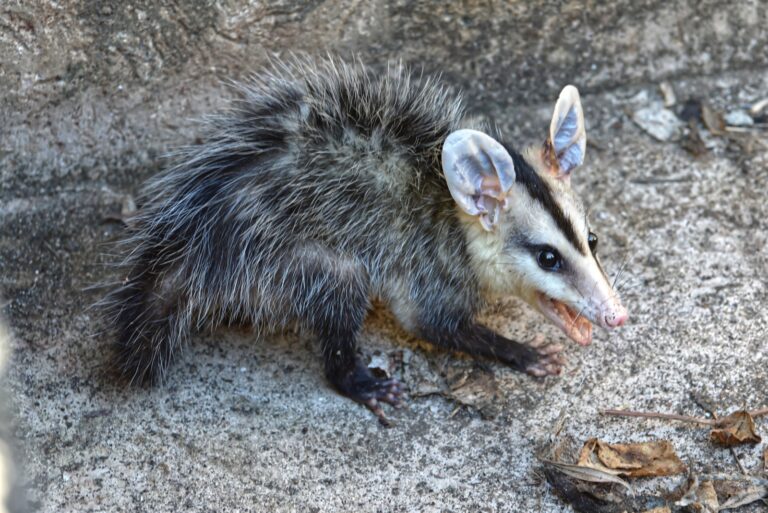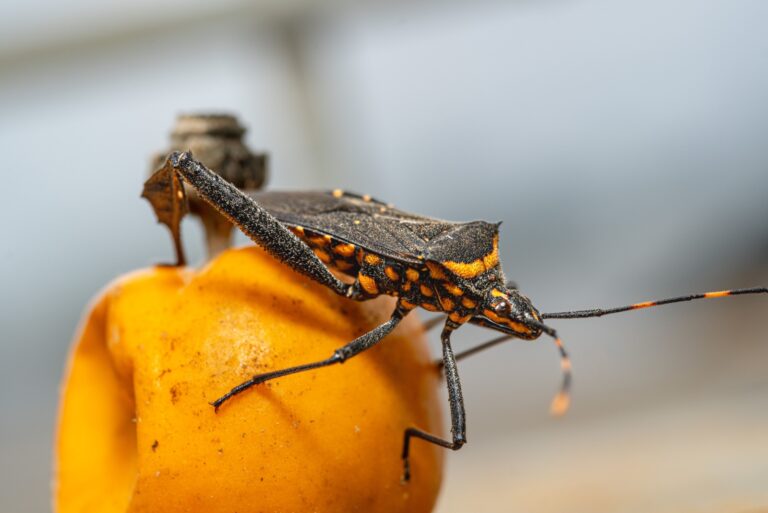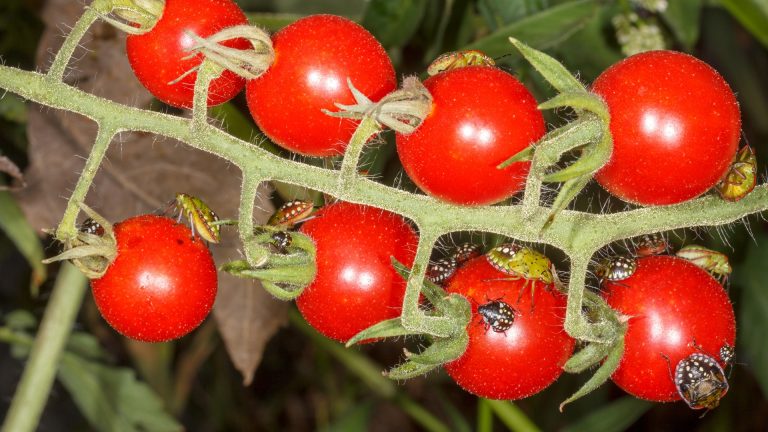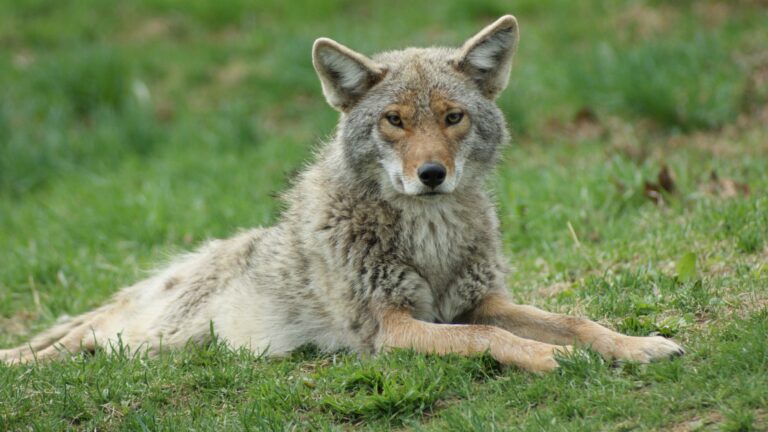13 Garden Plants That Help Keep Mice Away In Michigan
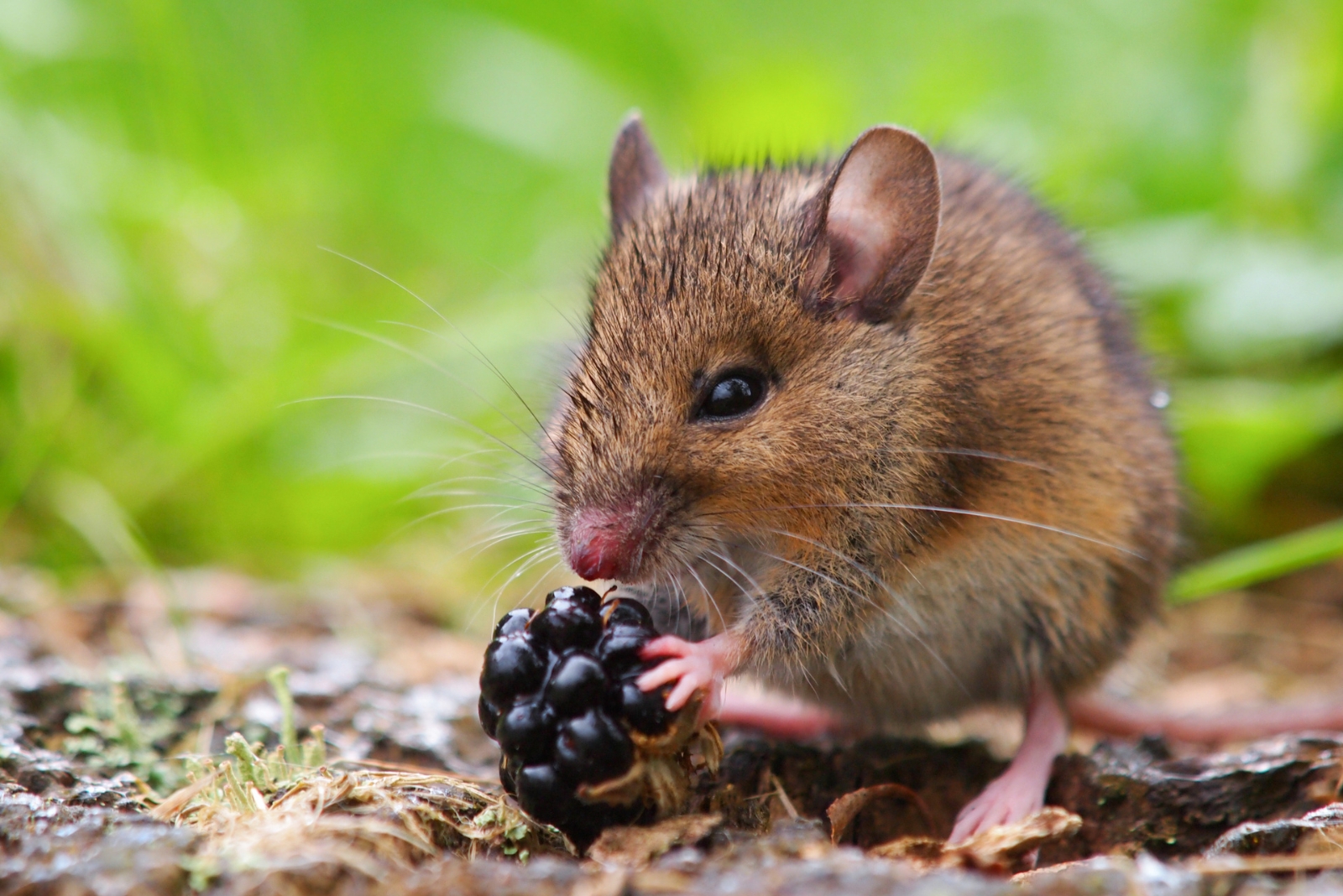
Dealing with mice in your Michigan garden can feel like an endless battle. These tiny critters love to munch on plants, dig up bulbs, and make themselves at home in your outdoor space.
Fortunately, nature provides a simple solution: certain plants naturally repel mice with their strong scents and textures, helping you protect your garden without harsh chemicals.
1. Peppermint
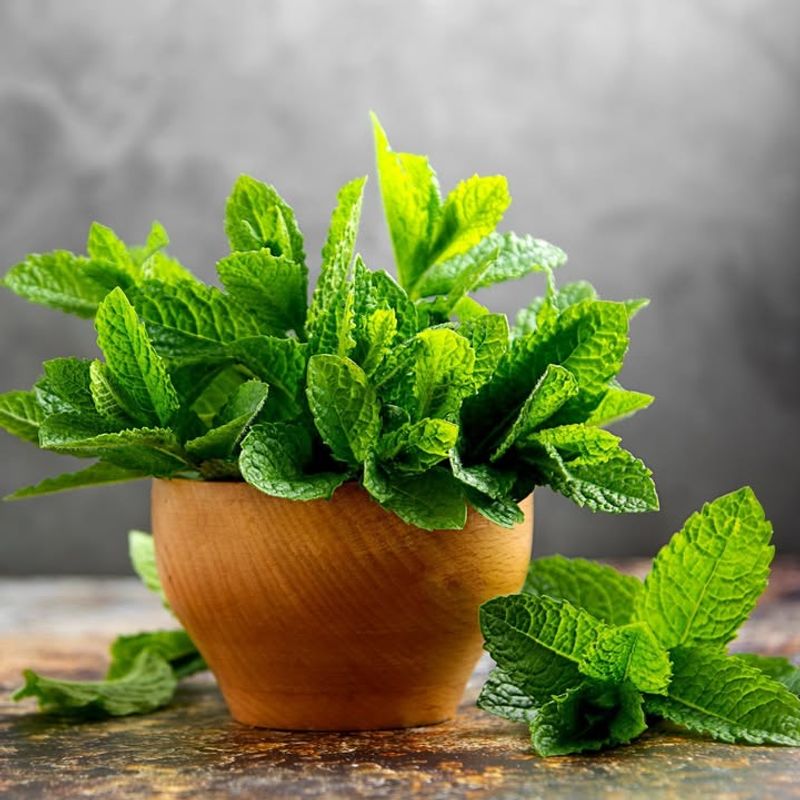
Mice absolutely hate the powerful aroma of peppermint, making it one of your best defenses against garden invaders. Plant it around the edges of your garden beds or near entry points where mice might sneak in.
Peppermint grows vigorously in Michigan’s climate and spreads quickly, so consider planting it in containers to keep it contained. The bonus? You can harvest fresh leaves for tea or cooking throughout the summer months, enjoying both pest control and culinary benefits from this hardworking herb.
2. Lavender

While humans find lavender’s scent soothing and delightful, mice find it overwhelming and unpleasant. This beautiful perennial thrives in Michigan’s sunny spots and produces gorgeous purple blooms each summer.
Position lavender plants near vegetable gardens or along pathways where mice commonly travel. The strong essential oils in lavender leaves and flowers create an invisible barrier that rodents prefer to avoid. Plus, you’ll attract beneficial pollinators like bees and butterflies while keeping the unwanted visitors away from your prized plants.
3. Rosemary
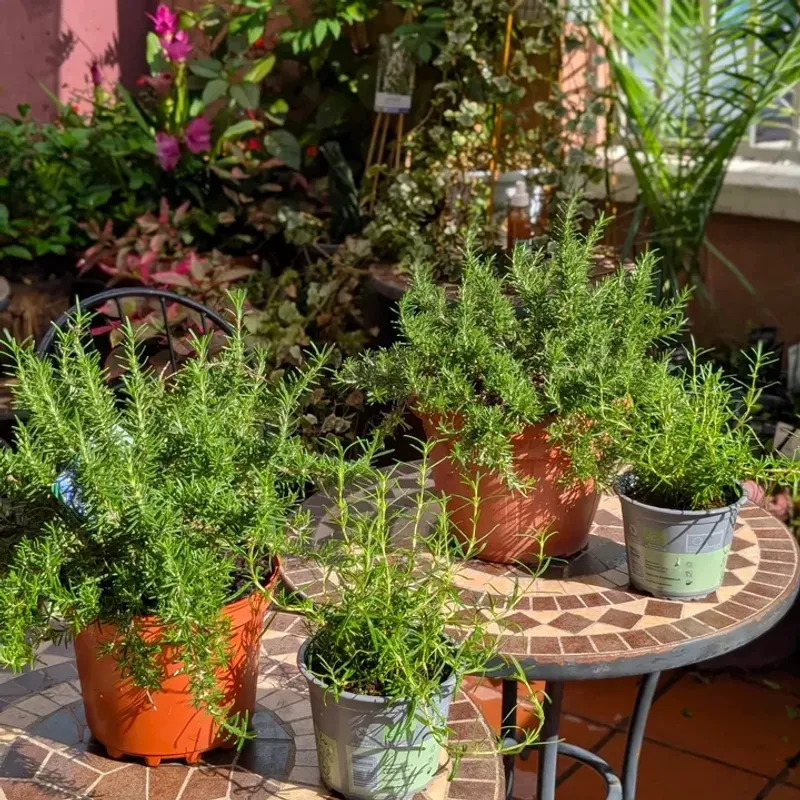
Did you know rosemary’s piney fragrance acts like a natural alarm system for mice? They detect the strong scent from far away and typically steer clear of areas where it grows.
In Michigan, rosemary works best as a potted plant since it’s not fully winter-hardy in most areas. Place containers near doorways, patios, or garden entrances during warmer months. Snip fresh sprigs for cooking whenever you need them, knowing your delicious herb is pulling double duty as both seasoning and pest deterrent.
4. Marigolds
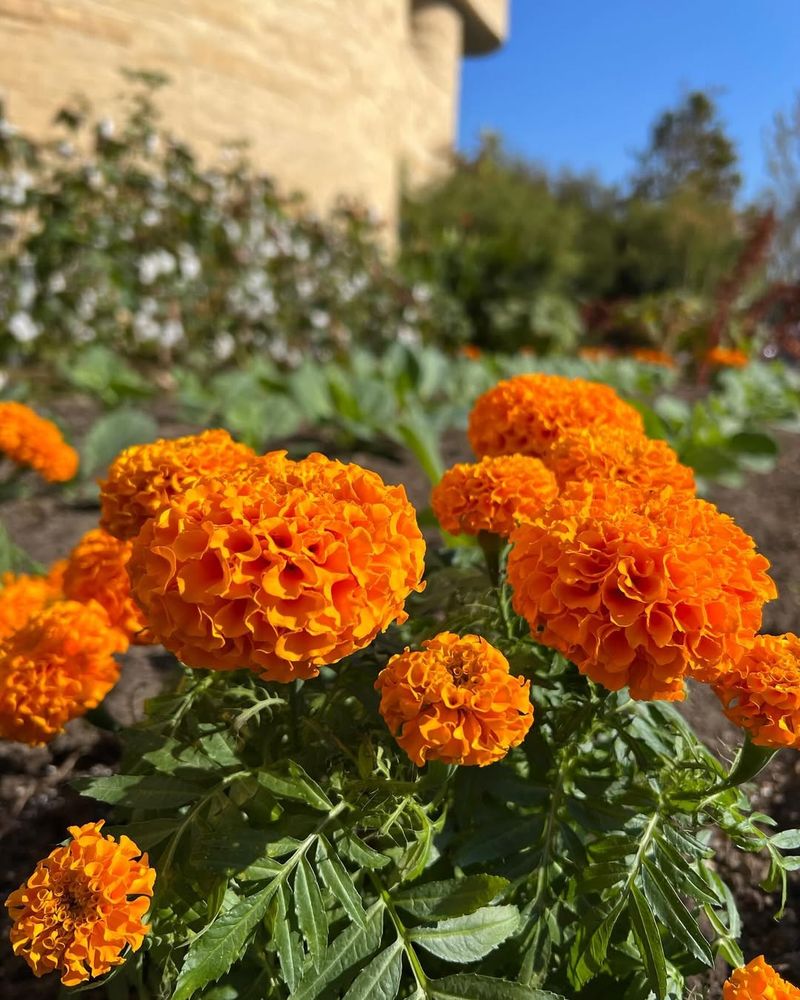
Marigolds bring cheerful color to Michigan gardens while their pungent smell sends mice running in the opposite direction. Their distinctive musky scent comes from natural compounds that rodents find incredibly offensive.
Plant marigolds as a colorful border around vegetable patches or flower beds that need protection. These hardy annuals bloom from late spring until the first frost, providing months of continuous mouse-repelling power. Gardeners have trusted marigolds for generations to guard against various pests, making them a time-tested solution for your outdoor space.
5. Garlic

Garlic’s intense odor doesn’t just flavor your favorite dishes—it creates an environment mice absolutely despise. Each bulb releases sulfur compounds that irritate rodent senses and drive them away from treated areas.
Plant garlic cloves in fall for a summer harvest in Michigan, spacing them around vulnerable plants that mice typically target. The smell intensifies as bulbs mature underground, creating a protective zone that lasts throughout the growing season. You’ll end up with fresh garlic for your kitchen and fewer four-legged thieves stealing from your garden beds.
6. Daffodils
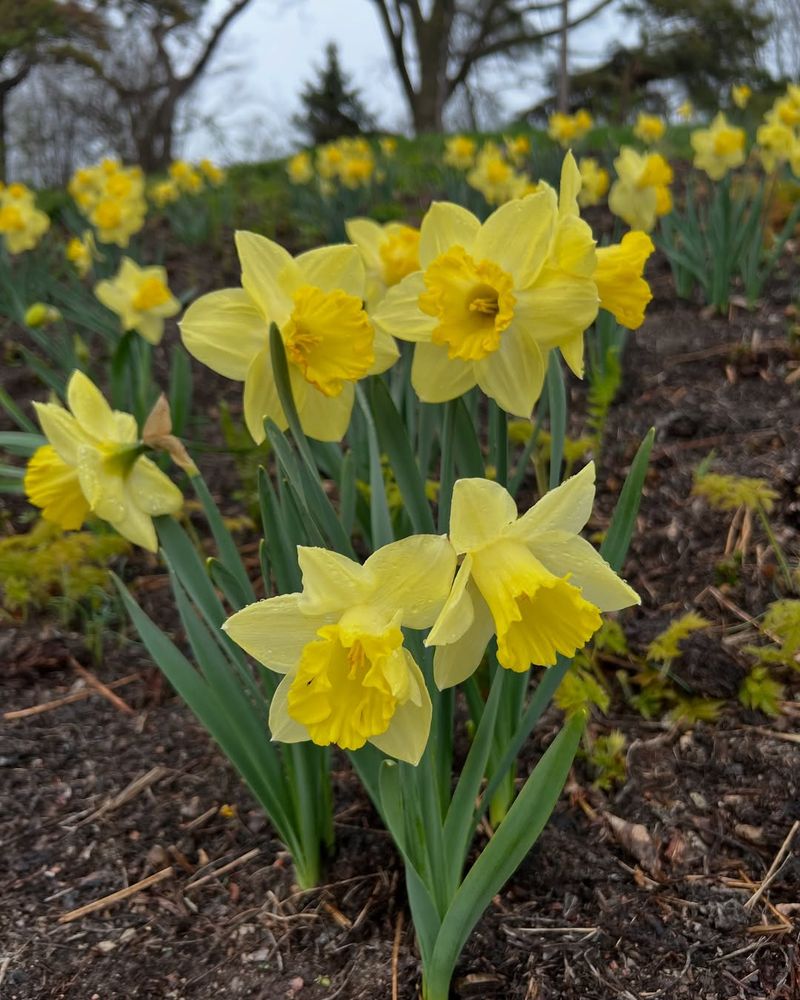
Daffodils contain toxic alkaloids that mice instinctively avoid, making them excellent guardians for spring gardens. These cheerful yellow blooms emerge early in Michigan, often poking through the last snow to announce warmer days ahead.
Plant daffodil bulbs in fall around areas where mice have caused problems before. Unlike tulips, which mice love to eat, daffodils remain untouched and multiply year after year. Their poisonous nature protects not just themselves but also nearby plants, creating safe zones throughout your landscape.
7. Allium
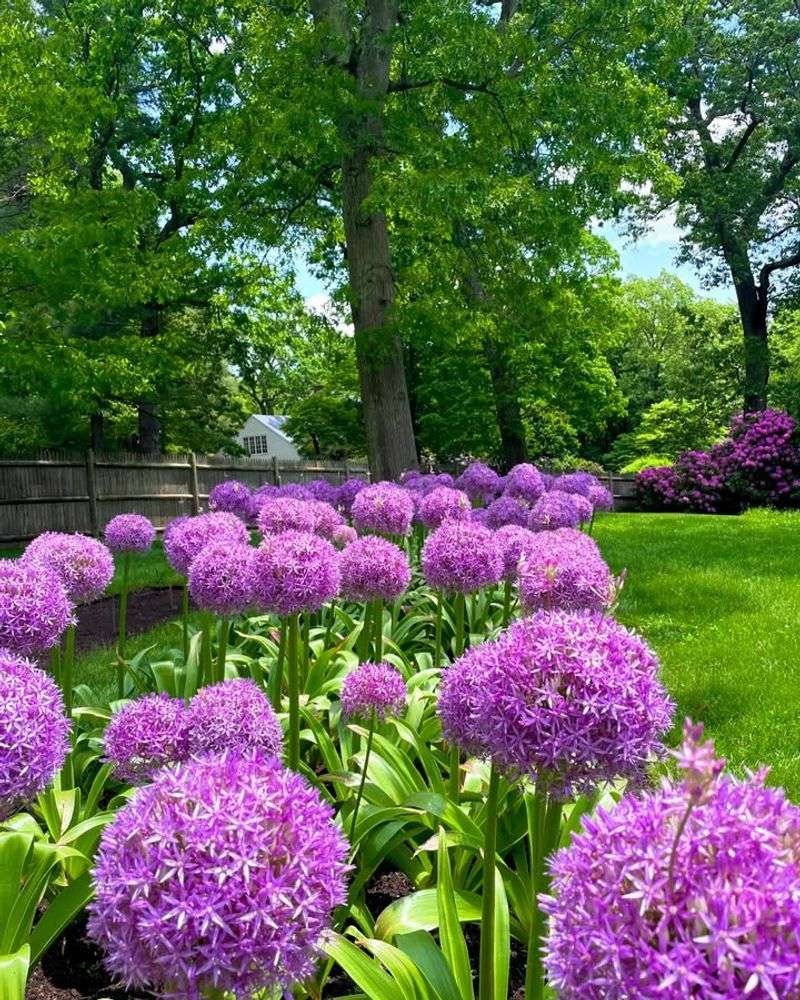
Related to onions and garlic, alliums produce stunning spherical flower heads while releasing a sharp odor that mice can’t tolerate. These architectural plants add height and drama to Michigan gardens from late spring through early summer.
Space allium bulbs throughout flower beds where you’ve noticed mouse activity or damage. The onion-like smell persists even after flowers fade, continuing to provide protection. Bees and butterflies adore allium blooms, so you’ll create a wildlife-friendly garden that welcomes beneficial visitors while excluding destructive rodents from your carefully cultivated spaces.
8. Catnip

Catnip drives cats wild but sends mice scurrying away, thanks to a compound called nepetalactone that rodents find repulsive. This hardy perennial grows easily in Michigan and requires minimal care once established.
Plant catnip near vegetable gardens or compost areas where mice often congregate. It spreads enthusiastically, so give it space or use barriers to control growth. Your feline friends might roll around in it with joy, but that activity actually helps release more of the mouse-repelling oils into the surrounding air.
9. Sage
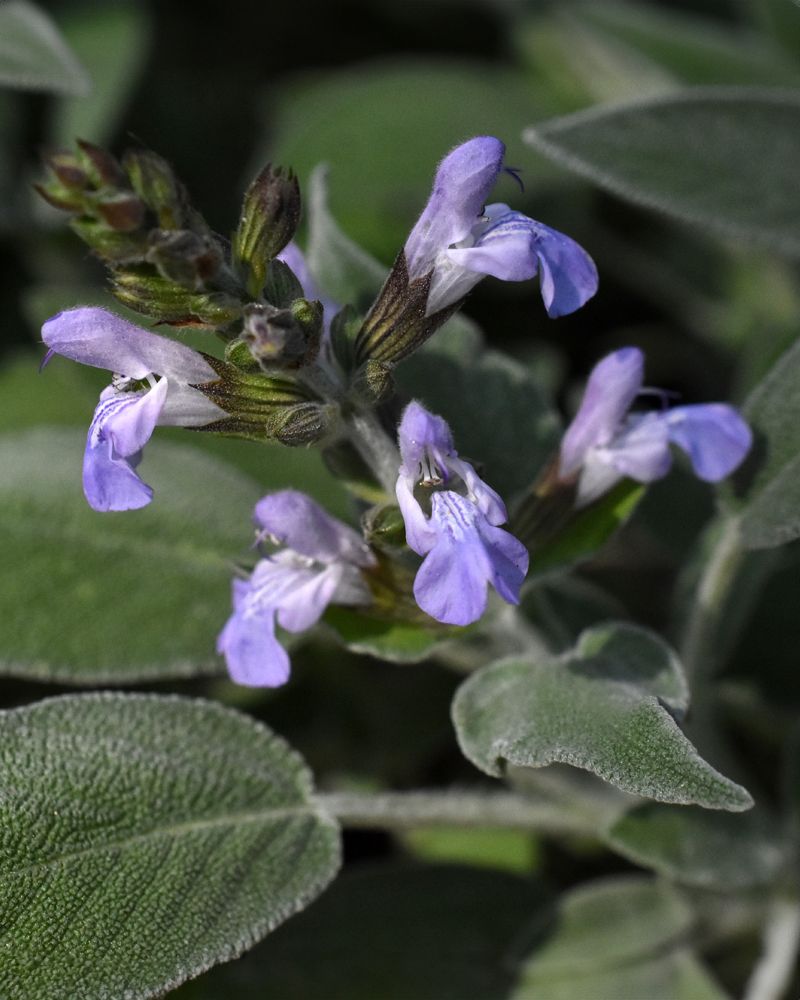
Sage’s earthy, camphor-like aroma makes it an effective mouse deterrent while adding culinary value to your Michigan garden. The fuzzy, textured leaves contain potent oils that rodents find particularly disagreeable and avoid touching.
Position sage plants near foundations, sheds, or garage areas where mice might seek shelter. This Mediterranean herb loves sunny, well-drained spots and becomes more fragrant during hot summer days. Harvest leaves regularly for cooking—the trimming encourages bushier growth and releases more scent to strengthen your natural pest barrier around vulnerable areas.
10. Chrysanthemums
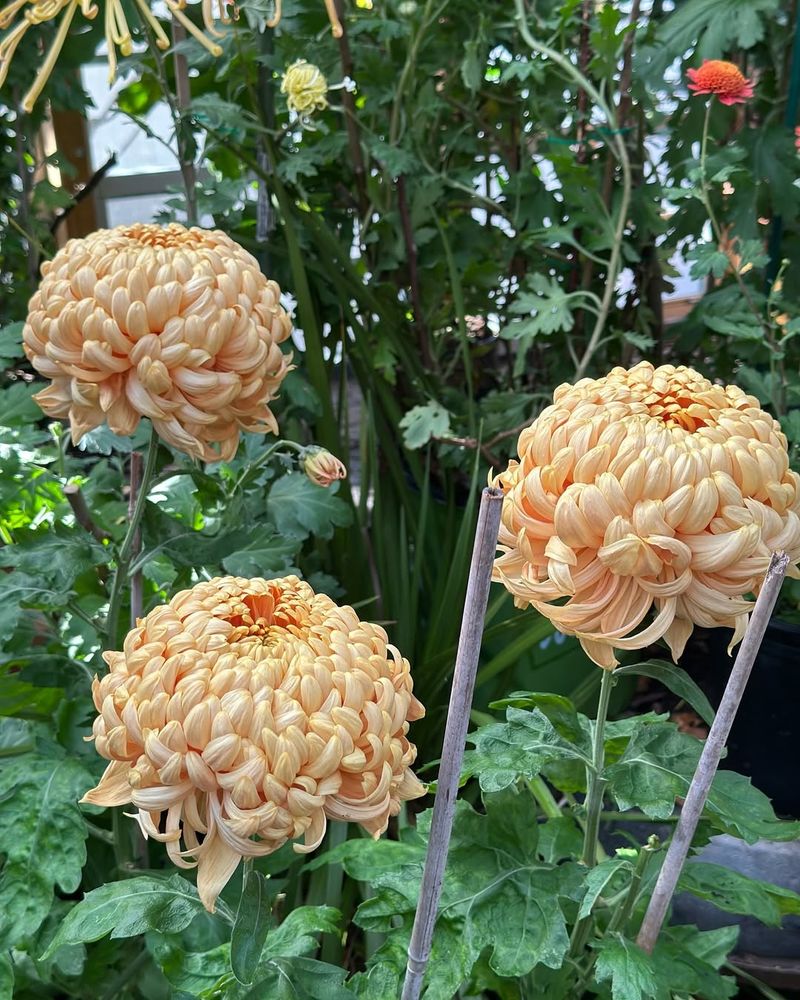
Chrysanthemums contain pyrethrin, a natural compound used in many commercial pest repellents, making them powerful allies against mice. These fall-blooming favorites brighten Michigan gardens just when most other flowers are fading.
Plant mums in late summer for spectacular autumn displays that also protect your garden from rodent invasions. The pyrethrin in their leaves and flowers disrupts the nervous systems of mice and insects, encouraging them to find safer territory. Choose hardy varieties that return year after year, building up stronger mouse-repelling properties with each passing season.
11. Oregano

Oregano’s sharp, spicy fragrance works wonders at keeping mice out of garden spaces while providing fresh herbs for your kitchen. This low-growing perennial spreads into a fragrant carpet that rodents refuse to cross.
Use oregano as ground cover around taller plants or along garden pathways in Michigan. It tolerates various soil conditions and actually produces stronger scent when grown in less-than-perfect soil. The essential oils become more concentrated during dry spells, intensifying the mouse-repelling effect. Regular harvesting keeps plants compact and encourages new, aromatic growth throughout the season.
12. Thyme

Thyme creates a low, aromatic barrier that mice dislike crossing, making it perfect for edging beds and borders in Michigan gardens. Its tiny leaves pack a powerful punch of essential oils that overwhelm sensitive rodent noses.
Plant creeping thyme between stepping stones or as living mulch around vegetables that need protection. This tough little herb withstands foot traffic and releases more fragrance when brushed or stepped on. Multiple varieties offer different scents and colors, letting you customize your mouse-repelling strategy while creating beautiful, functional garden spaces that serve multiple purposes.
13. Geraniums (Scented Varieties)
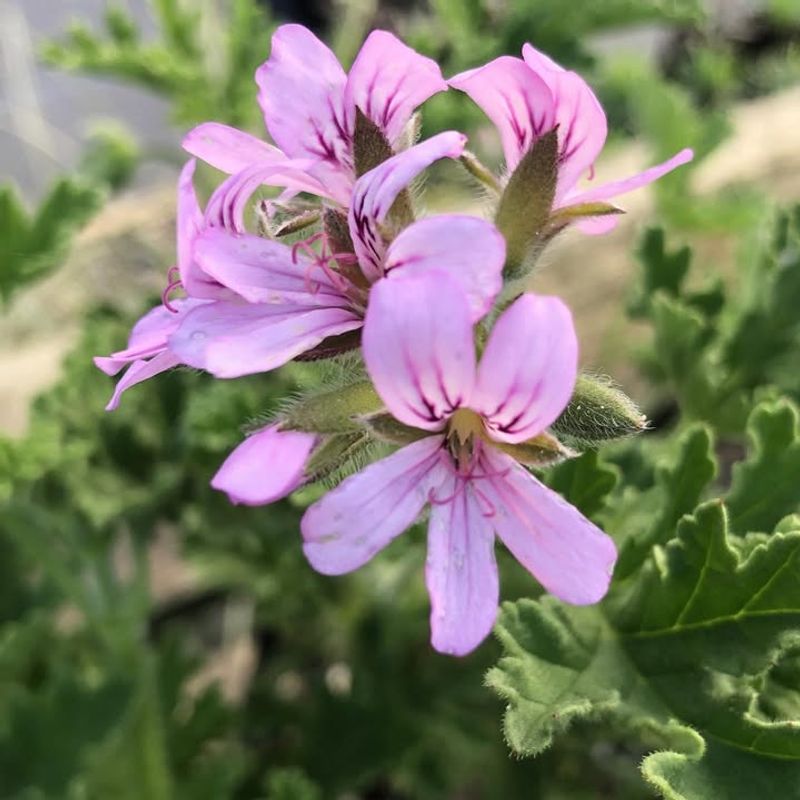
Scented geraniums offer an amazing variety of fragrances—lemon, rose, mint, and more—that all share one thing in common: mice hate them. Unlike regular geraniums, these varieties are grown primarily for their aromatic foliage rather than showy flowers.
Grow scented geraniums in pots that you can move around Michigan gardens to problem areas as needed. Touch the leaves to release their powerful scent, creating an immediate mouse-deterrent zone. Bring containers indoors before frost to continue enjoying their fragrance and protective benefits throughout winter months when mice seek warm shelter.


